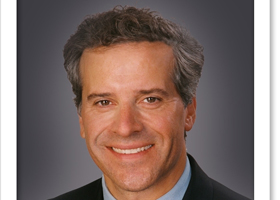


Give us a summary of the new EU rules on hedge funds – what’s being proposed?
Under the proposed rules, hedge fund and private equity firms located in the EU would need to comply with a range of requirements including limiting the amount of leverage they use, modifying their compensation arrangements, making certain disclosures about their portfolios and restricting the list of acceptable custodians to European institutions who are willing to accept certain liabilities within the funds that they hold assets for. Non-EU hedge funds and private equity managers would face similarly exacting requirements if they wish to market themselves to EU investors. In addition, the regulators governing non EU managers are being asked to provide a supervisory role for managers that wish to operate within the EU. AIMA estimates that approximately 80% of hedge funds globally will de facto be prohibited from raising capital in the EU if the proposed rules are accepted in their present form. There are some basic rules that make sense: adequate capital requirements, registration and proper disclosure to regulators and investors – AIMA has always been in favour of these objectives. But there are many contentious parts, such as where assets need to be located, a limited list of acceptable custodians and unworkable requirement that local regulators outside the EU have responsibility for compliance requirements within the EU. The important thing to understand is there are several competing drafts, with one of those drafts being voted on and approved yesterday and therefore the current state is quite fluid.
How could these proposed new rules affect Canadian hedge funds and hedge fund managers?
From a Canadian vantage point, the rules in current form could have significant implications for alternative managers including hedge funds and private equity funds. Europe has been a particularly strong source of funding for Canadian managers over the years, and the new rules would essentially force managers to comply with various restrictions before they could even market their fund to an EU-based investor. Canadian managers are typically smaller in size, so the cost alone of following the rules in current form would in our view close Europe’s doors to a large cross-section of the Canadian alternatives industry. As well, there is a risk that it would provoke a retaliatory action in non-EU jurisdictions, where non EU regulators and politicians could feasibly say “hey, if you make it difficult for us, we’re going to make it just as difficult for you.” So on a broader level you could be looking at protectionism.
What would this mean for Canadian plan sponsor clients? If hedge funds can’t market in Europe, so what?
It’s important to note that the proposed rules not only affect the ability of non EU managers from attracting capital in the EU but also severely limits the operations of EU managers themselves. If Canadian plan sponsors are planning to access EU-based hedge funds or private equity managers then the proposed rules could have a material impact on their decision to go ahead with their investment. For example, one of the proposed rules requires that EU based managers have to utilize EU based custodians which of course may not be acceptable from a credit perspective to Canadian plan sponsors. It seems quite odd that Canadian banks which weathered the credit crisis better than almost all institutions globally would not be an acceptable counterparty for EU managers yet a EU based financial institution would be. In addition, if a Canadian plan sponsor typically accesses alternative strategies through fund of fund managers located in the EU then those fund of funds would likely have a smaller list of acceptable hedge funds under the proposed rules and therefore one wonders whether the past track of the fund of funds will be indicative of future returns.
In the press release, these proposals were called “punitive” — why did you use this word? What do you think hedge funds are being punished for?
AIMA welcomes the parts of the Directive which relate to G20 concerns, such as the reporting of systemically relevant data by managers to their national supervisors in the interests of financial stability, and the registration and authorization of managers. However, some of the more recent iterations of the directive appear to be motivated by politics, in the sense that politicians are looking to blame the 2008 financial crisis and more recently the European sovereign debt crisis on the hedge fund industry. German Chancellor Angela Merkel has called it a “scandal” that hedge funds aren’t regulated yet many of the proposals do not relate to regulation. To this extent, we view some of the more recent actions and comments as punitive in nature and that will affect international capital flows.
